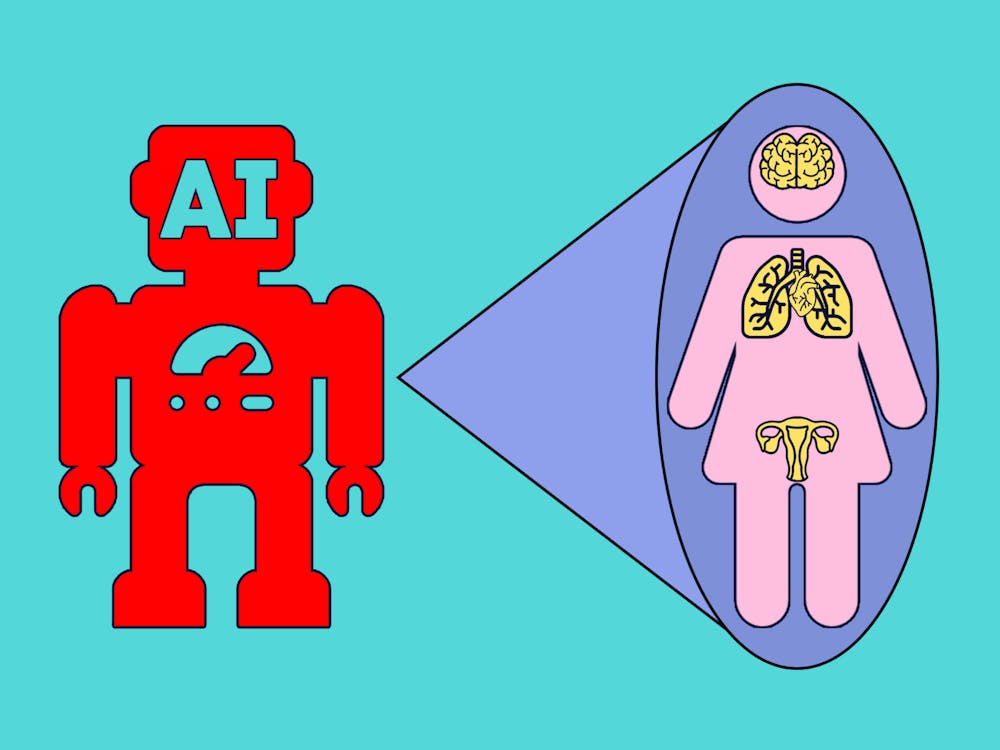ChatGPT can draft a college essay, plan a tropical vacation or generate images of squirrels eating ice cream in outer space. Now, it may be a lifeline for those like Pamela Burnett.
When 63-year-old Burnett was diagnosed with breast cancer 23 years ago, artificial intelligence was a mere blip on the horizon. It was not yet helping doctors detect tumors and prescribe tailored treatments.
Undergoing screenings, chemotherapy and radiation was a long, grueling slog, she said. At times, Burnett lost faith she would recover.
“I was numb. I shut down,” she said. “My family, they could not handle me being sick, and so I pretended that everything was okay.”
In the early aughts, only those in white lab coats could formulate a cancer care plan for Burnett. Now, researchers at UF lean on chatbots and data algorithms to do part of the heavy lifting.
At UF’s Intelligent Clinical Care Center, machine learning and artificial intelligence are making diagnostics more efficient, enabling patients to undergo chemotherapy and radiation sooner than was once possible.
Pinkai Sarder, the center’s associate director for imaging, predicts AI will one day formulate a cure for cancer but said the technology won’t eclipse the role of medical professionals.
“AI can only be used as a way to assist doctors,” he said.
Radiologists can use computer algorithms trained on health data patterns to spot diseases with 20% more accuracy, cutting the detection workload by nearly half.
Dejana Braithwaite, UF’s associate director for cancer population sciences, said AI makes cancer diagnosis more efficient by automating screening and data processing tasks.
“Rather than having humans read the mammograms and other imaging, we use AI to help us speed up that process, which has been historically labor intensive and time intensive,” she said.
Braithwaite typically works with breast cancer patients in their 40s and 50s, using artificial intelligence to analyze their mammograms and tailor tumor reduction protocol to the results. She recommends young women — who are more likely to develop breast cancer than was traditionally surmised — practice healthy habits as preventive care and advises against those under 40 from routinely getting mammogram screenings.
Along with the risks of radiation exposure in mammography, ethical concerns abound with the use of AI in breast cancer research. Jennifer Fieber, a surgical oncologist at UF Health’s Breast Center, said health data acquired in mammography is encrypted to protect confidential records.
Doctors must ask patients for consent to use the technology in health data analysis, she added.
“Right now, the focus is more on sort of personalizing care, improving accuracy of diagnosis and then making sure that we're screening the right patients,” Fieber said. “That's the goal of AI: to, one, optimize who's being screened when, and two, to optimize the actual screening so that it catches more stuff.”
At Fieber’s imaging clinic, radiologists use AI to find cancer warning signs otherwise overlooked. The technology can draw attention to areas that might be at higher risk for breast cancer so doctors can recommend biopsies, she said.
It can also help doctors tailor treatments to patients, accounting for their multidimensional risk factors, including age, body mass index and family history with disease.
“The risk calculators we have right now are good, but they're not perfect,” Fieber said.
With the assistance of cutting-edge medical technology, she said doctors would ideally be able to funnel data from health charts into a large language model, which would spit out suggestions for medical intervention.
But the technology is still in its early stages. Matthew Disney, chair of UF’s chemistry department, said AI shows promise in precision medicine but is unlikely to put breast cancer in the rearview mirror.
“The misconception is [AI’s] going to be a panacea or a cure-all for everything,” Disney said. “It might help in some things, and we’ve got to figure out what they are.”
Contact Natalie Kaufman at nkaufman@alligator.org. Follow her on X @Nat_Kauf.
Natalie Kaufman is the business enterprise reporter and a second-year journalism major. Outside the newsroom, you'll catch her drinking too much caffeine and running.






